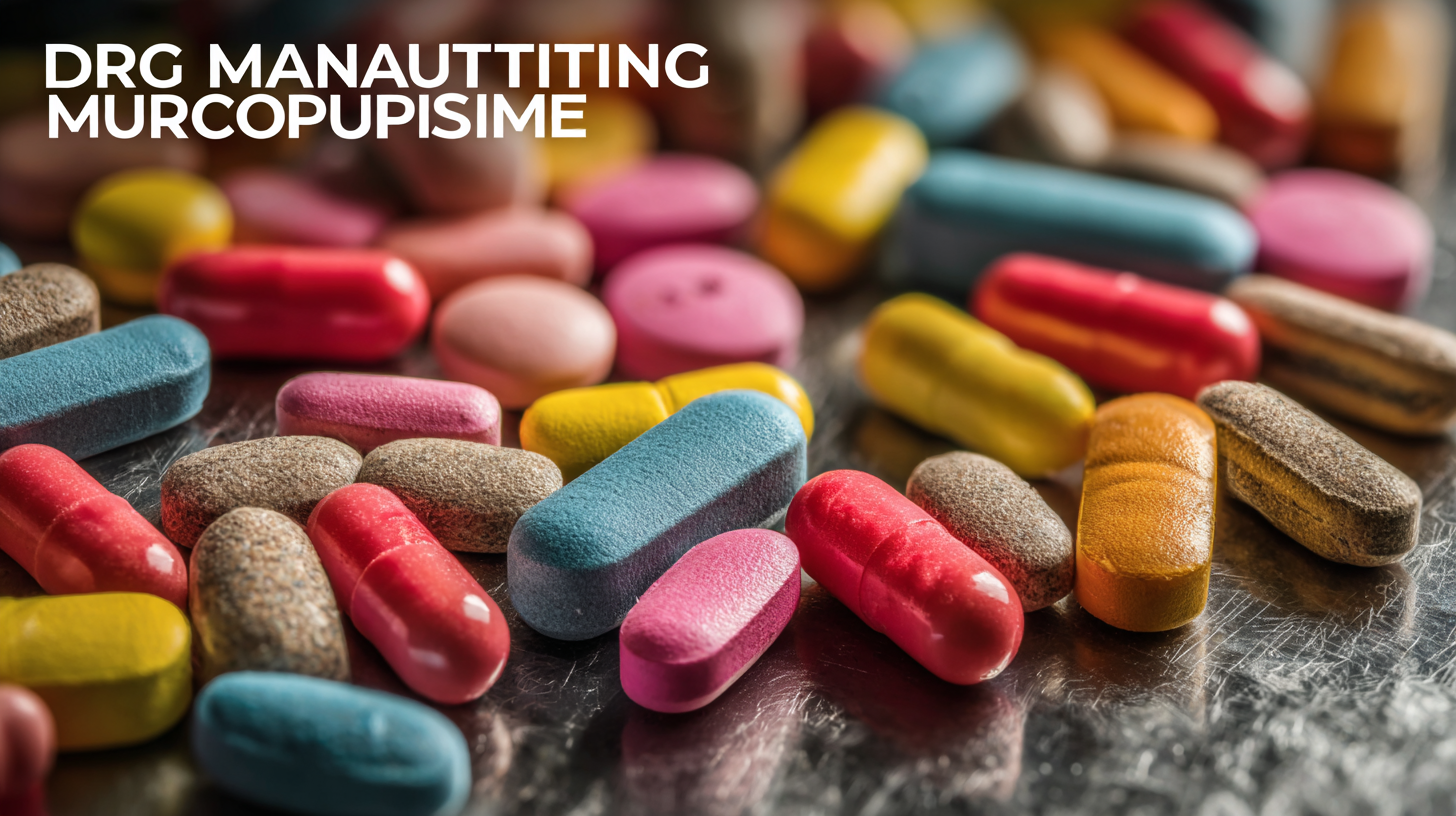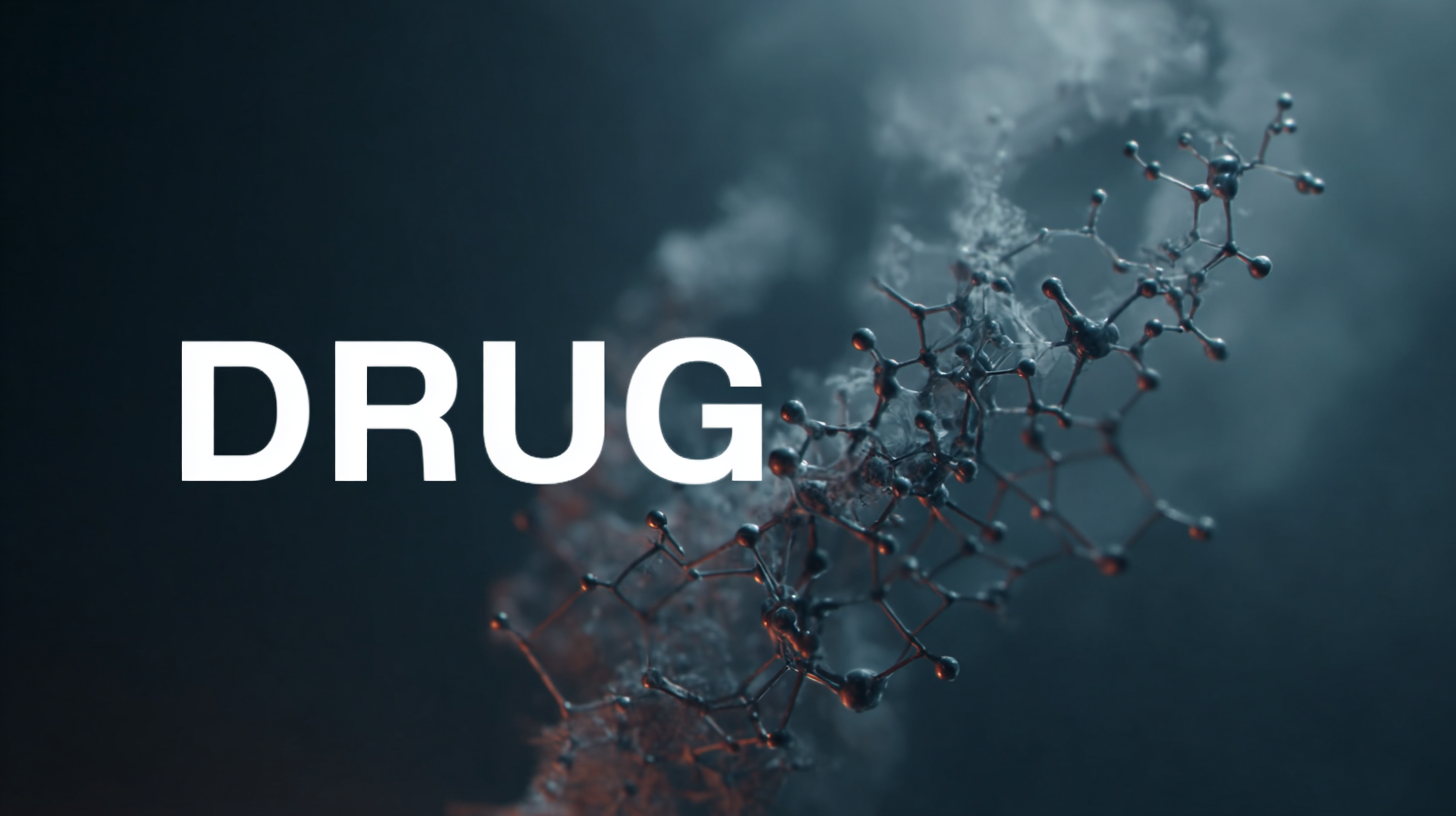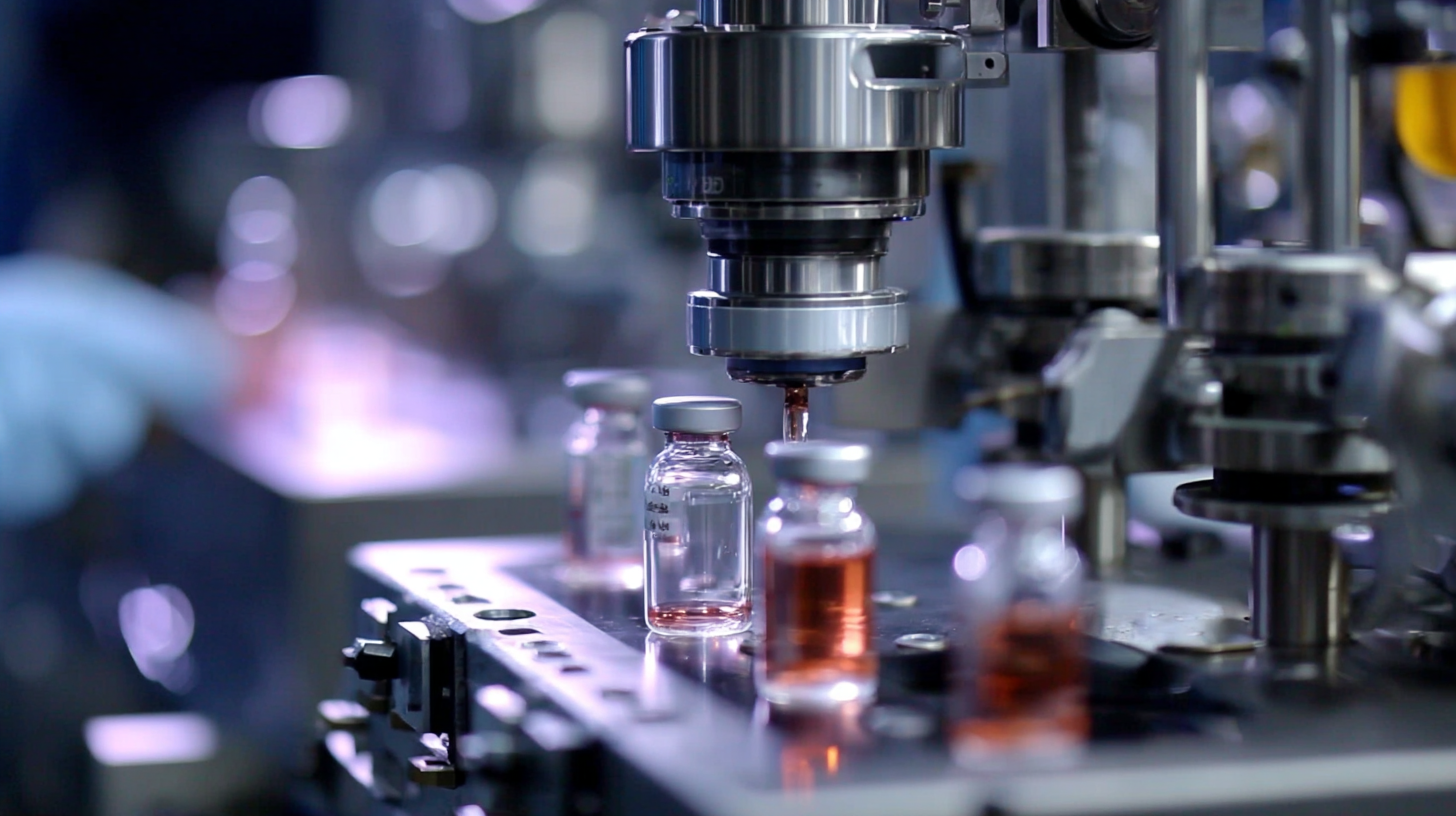In the ever-evolving landscape of the pharmaceutical industry, the emphasis on optimizing the Drug Manufacturing Process has never been more critical. According to the Global Pharmaceutical Manufacturing Market Report by Grand View Research, the sector is projected to grow at a CAGR of 7.3% from 2021 to 2028, highlighting the immense opportunity for manufacturers to streamline operations and enhance service delivery.
Effective after-sales services play a pivotal role in this optimization, not only to ensure compliance with industry regulations but also to minimize repair costs associated with production machinery and equipment. As the demand for high-quality pharmaceuticals continues to surge, integrating digital solutions and top-tier technologies into the after-sales framework can significantly enhance operational efficiency.

By adopting a comprehensive strategy that focuses on industry certification and the leverage of digital tools, drug manufacturers can maximize their service offerings while simultaneously reducing overall repair expenditures, positioning themselves advantageously in a competitive market.
In the pharmaceutical industry, streamlining after-sales services can significantly enhance customer satisfaction and reduce operational costs. One effective practice is the implementation of a centralized customer support system that ensures quick access to technical assistance and problem resolution. By using a consolidated platform, manufacturers can facilitate seamless communication between clients and technical staff, leading to faster response times and improved service quality. Additionally, leveraging data analytics can help identify common issues faced by customers, allowing companies to proactively address these concerns before they escalate.
Training is another crucial element in optimizing after-sales services. Providing comprehensive training programs for both customers and employees ensures that everyone is equipped with the necessary knowledge to operate and maintain equipment correctly. This not only minimizes the likelihood of operational errors that can lead to costly repairs but also empowers customers to maximize the use of manufactured products. Furthermore, offering ongoing support and easy access to resources such as manuals, FAQs, and troubleshooting guides can reinforce confidence in product handling, ultimately reducing the need for repairs and enhancing customer loyalty.
In the drug manufacturing process, effectively managing
repair costs is crucial for maintaining
profitability and ensuring product quality. Key Performance Indicators (KPIs)
play a fundamental role in this effort, allowing manufacturers to track and evaluate their
operations accurately. According to a report from MarketsandMarkets, the pharmaceutical
manufacturing market is expected to reach $745 billion
by 2026, underscoring the importance of implementing robust KPIs as a means to control repair
costs within this growing industry.
One of the most significant KPIs to monitor is the Mean Time to Repair (MTTR).
A study by PwC highlights that a reduction in MTTR can lead to significant cost savings,
as manufacturers can minimize downtime and streamline their production lines. Additionally,
tracking the percentage of unplanned maintenance
can offer insights into equipment reliability; reports indicate that companies achieving less than
15% unplanned maintenance often experience repair costs that are 25% lower
than their peers. By focusing on these KPIs, drug manufacturers can not only maximize their
after-sales services but also create a more cost-effective and efficient manufacturing process.

In the competitive landscape of drug manufacturing, after-sales service plays a crucial role in enhancing customer satisfaction and loyalty. Innovative technologies are reshaping after-sales support, making it more efficient and responsive. For instance, implementing IoT (Internet of Things) devices in production equipment allows for real-time monitoring of machinery, which can significantly reduce downtime. According to a report by Deloitte, companies that leverage IoT solutions can achieve up to a 30% reduction in maintenance costs, which directly impacts overall profitability.
Moreover, artificial intelligence (AI) is revolutionizing customer support in pharmaceuticals. AI-driven chatbots can provide instant assistance to healthcare providers, streamlining communication regarding product inquiries and troubleshooting. A study by McKinsey indicates that businesses adopting AI for customer support see a 20-30% increase in customer engagement and retention. By integrating such technologies, pharmaceutical companies can not only enhance their after-sales services but also minimize repair costs by proactively addressing issues before they escalate. Thus, investing in innovative tech solutions is pivotal for success in today’s pharmaceutical industry.

In the realm of pharmaceutical manufacturing, minimizing repair costs while enhancing after-sales services is crucial for operational efficiency and customer satisfaction. Case studies have highlighted innovative strategies employed by leading companies that not only reduced expenses but also improved product reliability. For instance, one prominent drug manufacturer instituted a predictive maintenance system that utilized data analytics to foresee potential failures before they occurred. By addressing equipment issues proactively, they managed to reduce downtime significantly and cut repair costs by nearly 30%.
Another successful approach involved implementing robust training programs for technical staff and end users. By empowering employees with in-depth knowledge of equipment operation and maintenance, a drug manufacturer was able to reduce human error-based repairs and improve overall service responsiveness. Additionally, establishing a feedback loop with customers allowed for real-time data collection, leading to quicker identification of issues. This strategy not only fostered stronger relationships with clients but ultimately resulted in a 20% decrease in repair costs through more efficient service interventions.
In the competitive landscape of drug manufacturing, establishing a robust feedback loop is essential for enhancing product quality and service efficiency. By actively collecting feedback from customers, technicians, and quality assurance teams, manufacturers can identify recurring issues and address them before they escalate into costly repairs. This continuous dialogue not only leads to immediate solutions but also informs long-term improvements in production processes and product formulations.
Implementing a structured feedback mechanism can significantly reduce repair costs. Regularly scheduled reviews that encompass both qualitative and quantitative metrics allow manufacturers to track performance trends and pinpoint areas for improvement. Encouraging open communication within the organization fosters a culture of accountability and innovation. When employees feel empowered to share insights, organizations can develop actionable strategies that increase efficiency and reduce the likelihood of defects. By integrating these feedback systems, drug manufacturers can not only mitigate repair expenses but also enhance the overall quality of their products, ultimately benefiting both the company and its customers.
| Service Category | Feedback Method | Average Repair Cost ($) | Repair Frequency (%) | Customer Satisfaction Score (out of 10) |
|---|---|---|---|---|
| Equipment Maintenance | Surveys and Follow-ups | 150 | 20 | 8.5 |
| Packaging Quality | Customer Reviews | 90 | 15 | 9.0 |
| Product Returns | Return Surveys | 200 | 30 | 7.0 |
| Technical Support | Live Chat and Emails | 50 | 10 | 9.5 |
